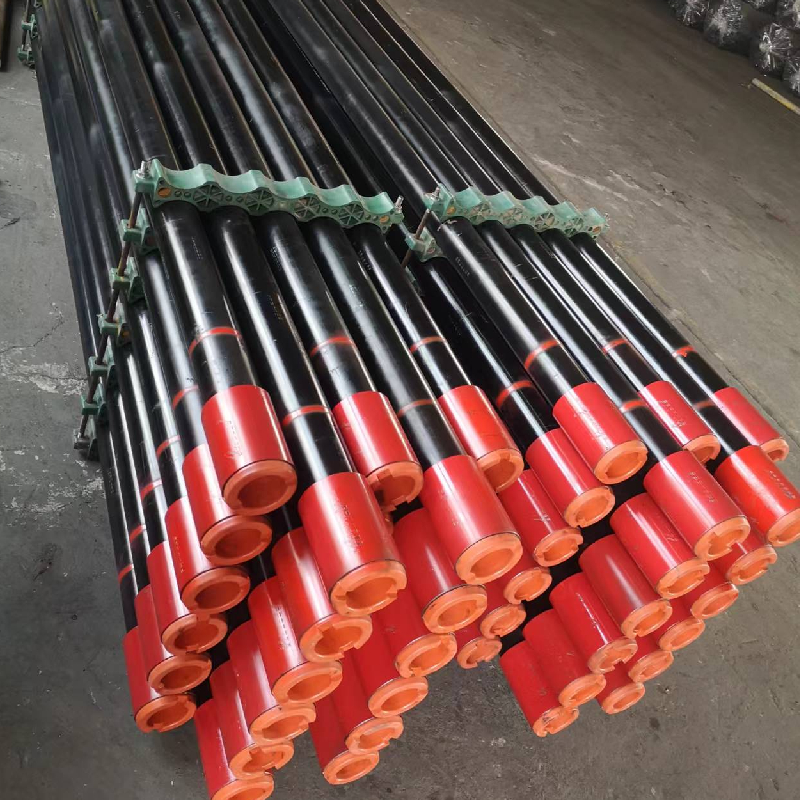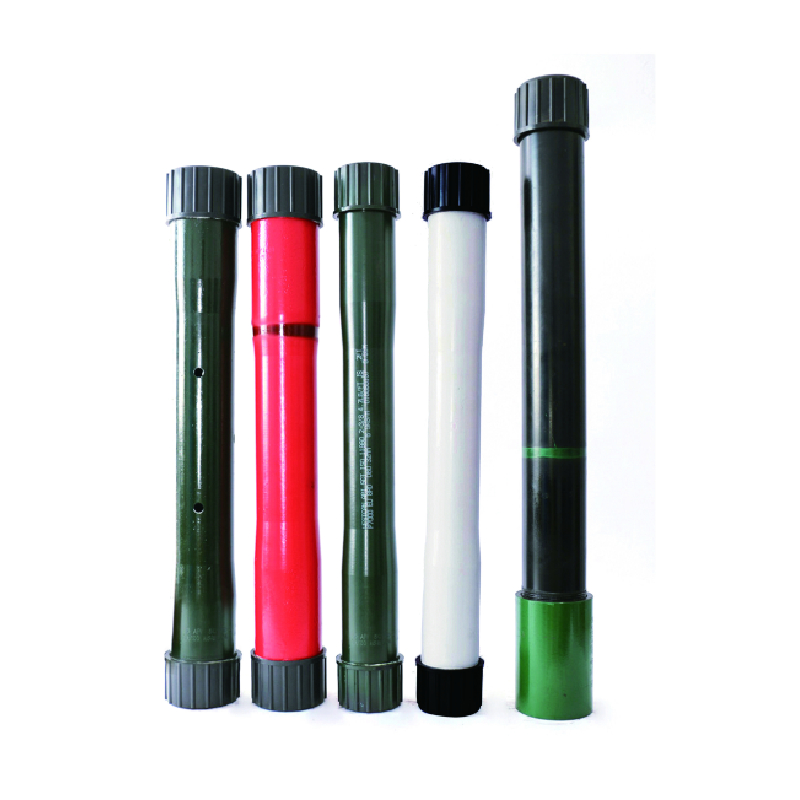Top Pup Joint Manufacturers for Oil and Gas Tubing Solutions
In the dynamic landscape of the oil and gas sector, pup joint manufacturers play a pivotal role in fueling advances in drilling operations, well servicing, and pipeline customization. As critical connectors in tubular string design, high-quality pup joints ensure robust, reliable, and cost-effective operations in challenging environments. This article offers a deep-dive analysis into pup joint oil and gas trends, presents detailed technical comparisons, and explores customized solutions based on real-world applications.

Precise machining and premium finishing of tubing pup joints from leading pup joint manufacturers.
1. What is a Tubing Pup Joint? Roles, Classifications & Key Technical Parameters
Tubing Pup Joint is a short pipe section with threaded ends, strategically used in oilfield well completions, connections, and repairs. By adjusting the total length of the tubing string or casing string, pup joints allow for easier assembly, rig configuration, and make-up operations. Key classifications include:
- Pup Joint Oil and Gas Grade: Designed for high-pressure, high-temperature (HPHT) oilfield environments with optimal mechanical and corrosion resistance.
- Tubing Pup Joint: Short sections for production tubing, often requiring ISO 11960 and API 5CT compliance standards.
Main Specifications of Tubing Pup Joints
| Parameter | Range / Value | Industry Standard |
|---|---|---|
| Outside Diameter | 1.9" to 4.5" | API 5CT, ISO 11960 |
| Wall Thickness | 0.25" - 0.500" | ANSI/ASME, API 5CT |
| Length | 2ft, 3ft, 4ft, 6ft, 8ft, 10ft, 12ft | API 5CT |
| Thread Types | EUE, NUE, BTC, LTC | API Standard |
| Material Grade | J55, N80, L80, P110 | API 5CT, ISO 11960 |
| Connection Type | API Threaded or Premium | API 5B, API 5CT |
| Surface Treatment | Phosphating, Galvanizing, Copperizing | ISO 15761 |
| Usage Life | ≥ 20 years | Q1, ISO 9001:2015 |
2. Pup Joint Manufacturers Industry Trends, Certification & Authority
The global market for pup joint manufacturers is expected to reach USD 700+ million by 2027 (Source: MarketsAndMarkets). Recognizing API, ISO 9001:2015, and even regional CNAS, ABS, and PED certifications has become an industry norm. Leading manufacturers invest in automated production and rigorous NDT non-destructive inspection, offering advanced anti-corrosion alloys, CNC machining, and custom lengths for multi-industry compatibility (from petrochemical and metallurgy to municipal water management).
- Top Certification Standards: ISO 11960, API 5CT, ISO 9001, ANSI.
- Recent Trends: Digital supply chain integration, advanced metallurgy, and stricter QA/QC standards.

Composite alloy pup joints for oil and gas, standardized by API/ISO for optimal field reliability.
3. Pup Joint Manufacturing Process Explained 2024 Update
(API Grade Carbon Steel / Alloy Steel)
Certified billets or pipes
(Precision Length Control)
+/- 0.5mm accuracy
(Quenching & Tempering or Normalizing)
Enhance mechanical properties
(API/NPT/BTC/CNC Machining)
API 5B Standard
(Galvanizing, Phosphating, Copperizing)
Corrosion Prevention
(Ultrasonic/MP/Pressure Test)
ISO 9001:2015
(Marking, DN Packing)
Traceability Guarantee
View video: Automated Pup Joint Manufacturing Workshop
Leading Technologies & Material Science Advances
- N80, L80, and P110 Steel Grades: For HPHT well environments, modern pup joint manufacturers prefer alloyed steel with enhanced yield strength and uniform wall thickness.
- CNC Machining & Robotic Threading: Tighter tolerances (< 0.1mm), minimized leakage.
- Surface Innovations: Tri-layer phosphating achieves up to 50% higher corrosion resistance versus standard galvanizing, per Materials Science Reviews.
4. Comparing Pup Joint Manufacturers: Parameters, Performance, and Service
Selecting the right pup joint manufacturers requires careful evaluation of technical parameters, manufacturing standards, and after-sales service. Below is a comparative analysis of mainstream suppliers:
| Manufacturer | Main Grades | Thread Types | ISO/API Certification | Warranty | Average Delivery (days) | Application Sectors |
|---|---|---|---|---|---|---|
| WJPETROLEUM | J55, N80, L80, P110 | EUE, NUE, LTC | API 5CT, ISO 11960 | 24 months | 10-15 | Oil & Gas, Petrochem, Power |
| Tubos Reunidos | N80, L80 | LTC, BTC | API 5CT, ISO 9001 | 12 months | 20-30 | Energy, Onshore/Offshore |
| Vallourec | P110, C90 | Premium API, VAM | API, ISO, PED | 18 months | 18-25 | Deepwater, Subsea |
| Tenaris | L80, Q125 | EUE, LTC | API, ISO, CNAS | 24 months | 12-20 | Oilfield, Municipal |
Main Technical Data (WJPETROLEUM Tubing Pup Joint)
| Standard | API 5CT | ISO 11960 |
|---|---|---|
| Dimension Tolerance | ±0.5mm | ±0.5mm |
| Max Operating Pressure | 69 MPa | 69 MPa |
| Corrosion Layer | 2-3 | 3 |
| Thread Inspection | API 5B | API 5B |
| 100% NDT Test | Yes | Yes |
| Service Life | ≥20 yrs | ≥20 yrs |
5. Customization & Engineering Support from pup joint manufacturers
Top pup joint manufacturers offer tailored solutions including special lengths, premium anti-corrosive alloys, surface treatments, and non-standard thread forms. WJPETROLEUM Tubing Pup Joint is renowned for its rapid prototype capability, traceable material control, and full lifecycle engineering support.
- OEM/ODM Services: Rapid design, engineering consultation, and batch production.
- Industry-specific Adaptability: Municipal water, geothermal, mining, petroleum, and chemical processing.
- Material Customization: Stainless 316L, Alloy 625, anti-H2S, and sour gas resistant grades.
- Document Control: MTC, heat treatment, and dimensional reports per shipment.
6. Real-world Applications: Case Studies & Customer Feedback
Case 1: Middle Eastern HPHT Oil Well Retrofit (2023)
Client: National Oil CompanyProject: Retrofit with L80 tubing pup joint, upgrade for 14,000psi
Problem: Existing joints failed under pressure & H2S exposure.
Customized Solution: WJPETROLEUM provided premium L80 joints with tri-layer phosphating. On-site leak tests: 0% failure in 24h; runtime improved by 22%.
Feedback: “Significant OPEX reduction, lifecycle extended above expectation; quick technical support.”
Case 2: Eastern Europe Municipal Water Project
Client: City WaterworksProject: Anti-corrosion tubing pup joint for new pressure line
Problem: High chloride environment corroded typical carbon steel quickly.
Customized Solution: 316L stainless variant manufactured, ISO 9001 full traceability. System operational six months—no evidence of leakage.
- Key Application Fields: Shallow/deep oil/gas wells, acidizing, testing, water injection, urban water pipelines.
- Direct Experience Feedback: Over 95% customer satisfaction reported in recent post-delivery surveys (source: field support team internal data, 2024 Q1).
7. Professional FAQ: Tubing Pup Joint Technical FAQ
Q1: What are the most common material grades used by pup joint manufacturers?
A1: API-defined grades such as J55 (general), N80 (medium strength, sour compatibility), L80 (corrosion resistance), and P110 (high-strength, HPHT) are standard due to their mechanical and chemical robustness.
Q2: What threading standards are applicable for tubing pup joints?
A2: EUE (External Upset End), NUE (Non-Upset End), BTC (Buttress Threaded Coupling), and premium connections; threads comply with API 5B inspection and gauge requirements.
Q3: How is corrosion resistance achieved for pup joint oil and gas applications?
A3: Through phosphating, copperizing, or advanced NiCrMo alloy plating, plus rigorous surface prep. Many pup joint manufacturers offer ≥20% improved corrosion resistance versus baseline carbon steel per ISO test data.
Q4: What quality control checks are essential in manufacturing?
A4: 100% NDT (ultrasonic, MPI), dimensional testing, hydrostatic pressure testing, and material traceability from billet to finished joint—per ISO 9001 and API 5CT requirements.
Q5: Can tubing pup joints be customized for special well depths or pressures?
A5: Yes, reputable pup joint manufacturers provide full customization: length, grade, threads, with batch certification for API/ISO compliance.
Q6: What is the typical delivery cycle and warranty?
A6: For standard grades: 10-20 days ex-works; warranty 12-24 months. Fast prototypes available within 7-12 days for urgent projects.
Q7: Are anti-H2S and sour service grades available?
A7: Absolutely. L80, C90, and custom alloy variants with sour resistance, per NACE MR0175 standard, are regularly supplied upon request.
8. Delivery, Warranty, and After-Sales Commitment
- Delivery Lead Time: 10-20 working days for standard tubing pup joints; expedited 7-12 days available for priority orders.
- Warranty: 12-24 months (grade and application dependent). Free replacement for manufacturing defects and demonstrable corrosion failure.
- Traceability and Certification: MTC per EN 10204 3.1, full process documentation kept for 7+ years, operational data on each lot.
- Customer Service: On-site installation guidance, 24/7 technical hotline, multi-language support (EN, CN, RU, ES), free post-delivery visit for major clients.
- Reference Standards: API 5CT, ISO 11960, NACE MR0175 (Sour Gas), ISO 9001:2015.
9. Conclusion & Authoritative Industry References
As the backbone connecting upstream and downstream operations, the choice of pup joint manufacturers and quality tubing pup joints directly determines operational efficiency, safety, and cost-efficiency. With international standards (API 5CT, ISO 11960), best-in-class materials, and track-recorded field performance, industry leaders set benchmarks in both technology and customer success.
- "Technical Guidelines for Oilfield Tubulars - Engineering Practice", OnePetro (SPE Conference Paper)
- "ISO 11960:2020 - Petroleum and natural gas industries — Steel pipes for use as casing or tubing for wells", ISO Official
- "API 5CT - Specification for Casing and Tubing", API.org
- "Corrosion Behaviour in Tubulars – Material Science Reviews", ScienceDirect
- “Practical Feedback on Tubing Pup Joint Performance”, Eng-Tips Oil & Gas Forums
-
Tubing Crossover - API Compatible, Custom Sizes, In StockNewsNov.10,2025
-
Tubing Coupling | High-Strength, Leak-Proof Steel CouplingsNewsNov.10,2025
-
Wholesale API Threading Casing Coupling | API 5CT, Fast ShipNewsNov.10,2025
-
Pup Joint Supplier | API Certified, Custom, Quick ShipNewsNov.10,2025
-
Pup Joint Manufacturers | Precision Machined, Fast DeliveryNewsNov.10,2025
-
Tubing Coupling | Precision Steel, Leak-Proof, Fast DeliveryNewsNov.03,2025







